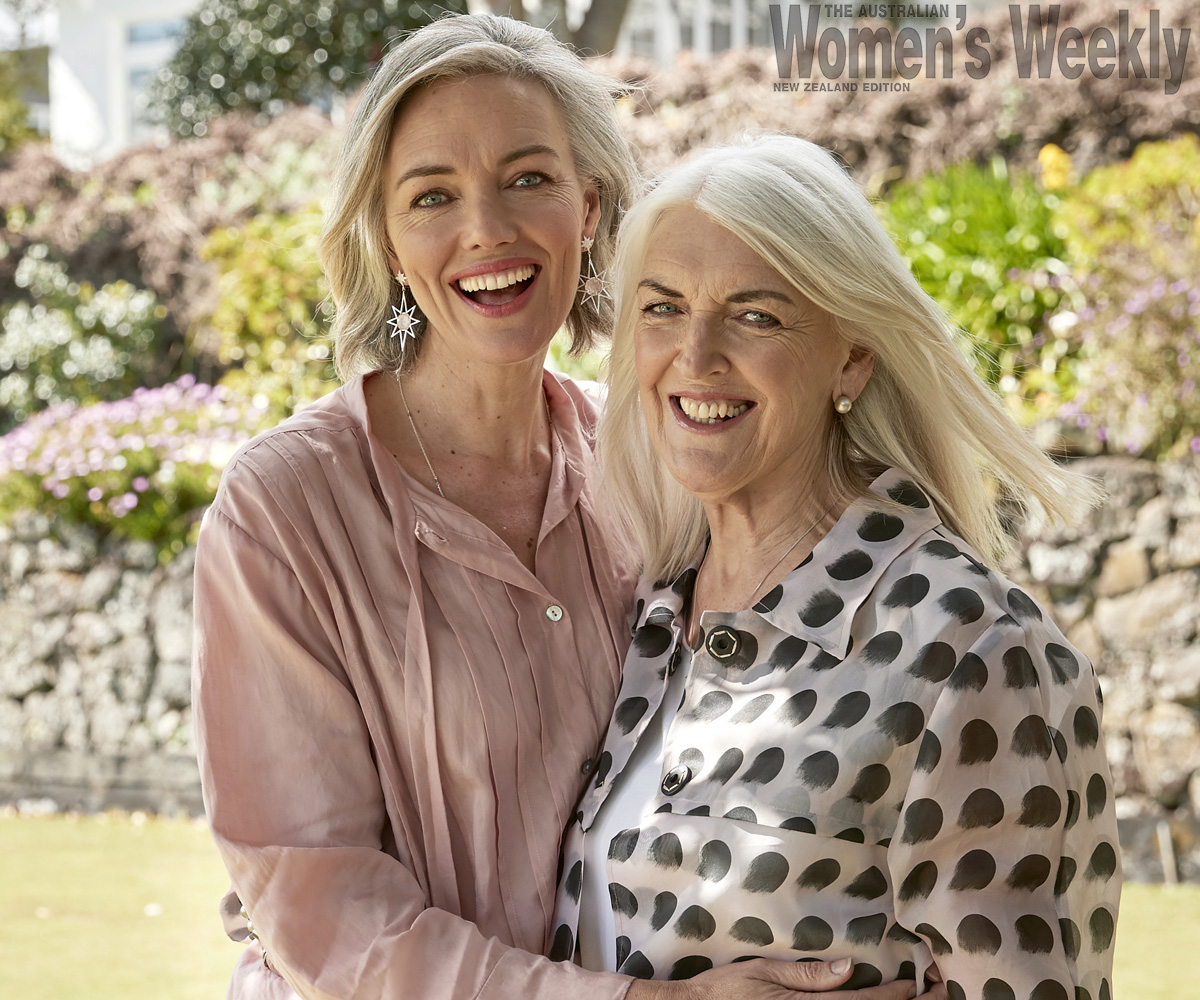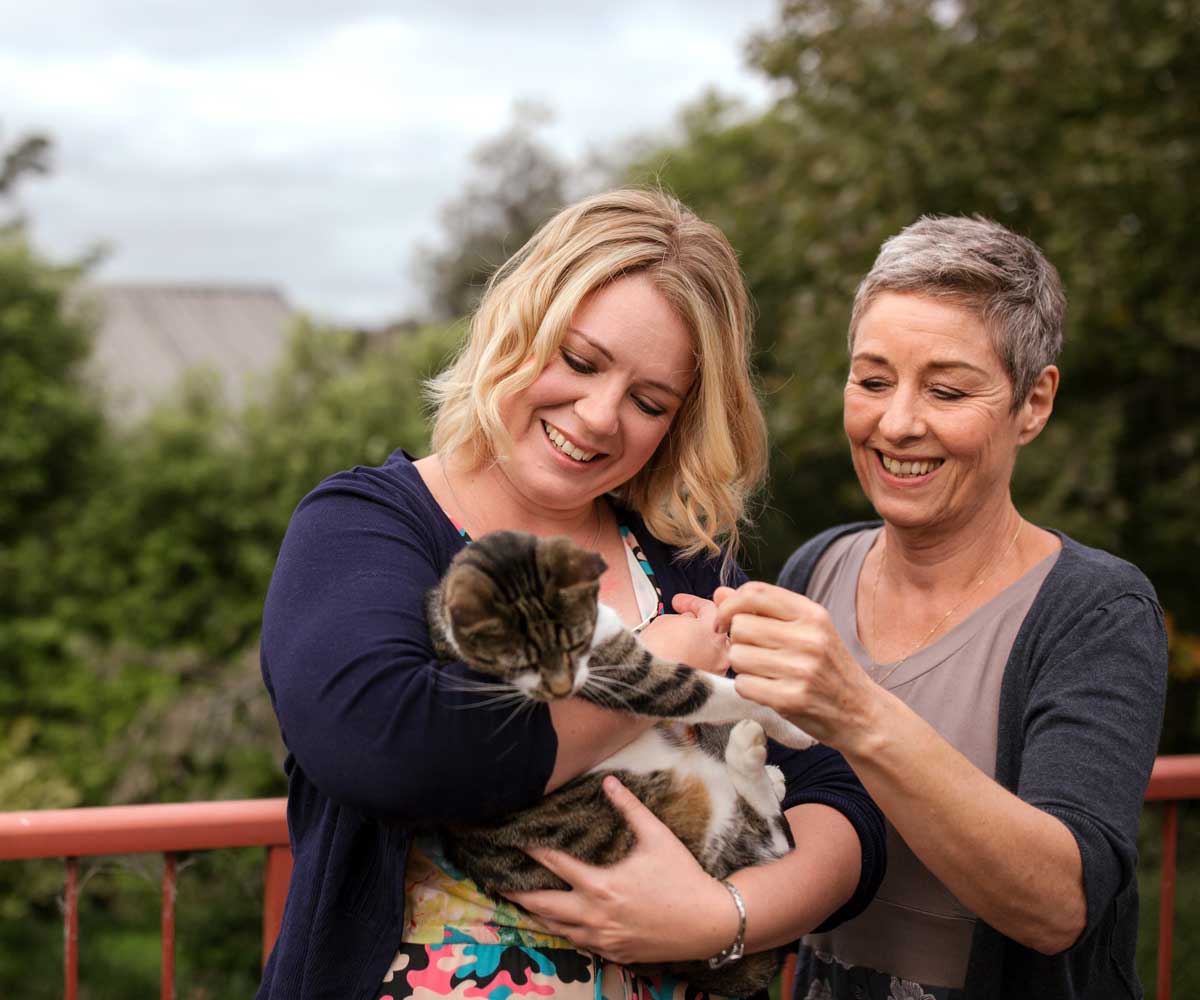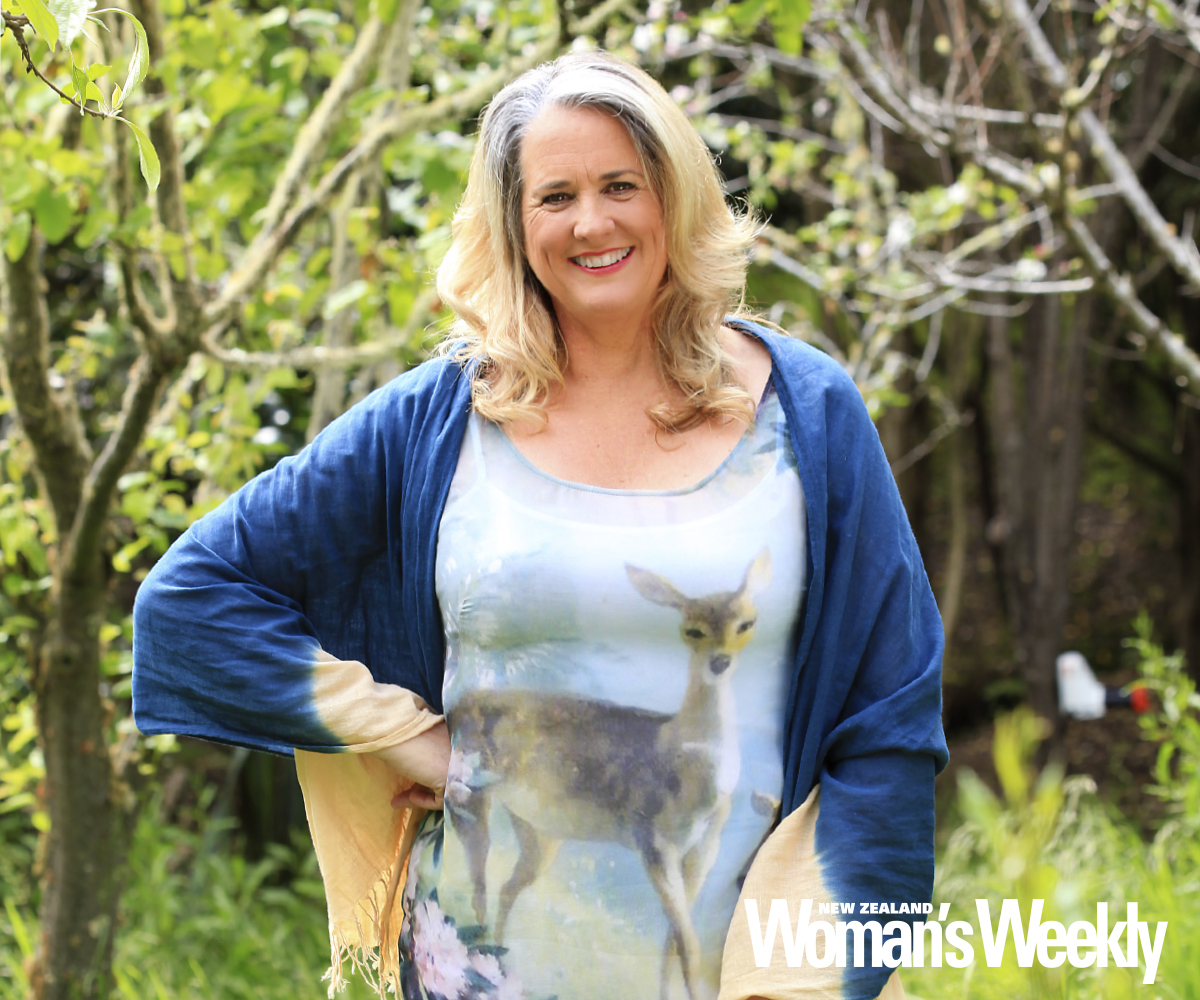There is a Māori proverb that reads: ‘He waka eke noa’. The literal translation is ‘the canoe which we are all in without exception’ but the general spirit is ‘we’re all in this together’.
It’s a saying about connection, about how no one can get through life alone, and it’s a theme Petra Bagust and her mother Judi have found repeated over and over again, both in their lives and in their learnings.
For the past three years, the pair have been studying Te Reo Māori, a passion project for both of them that quickly became something bigger than just learning a new skill.
“Both of us have discovered a deep joy in, what I would call, a life-expanding experience of seeing the world from a different perspective,” Petra says.
“If you cover one eye, you can see quite a lot but your idea of where things are and how things are placed is quite impaired. With both eyes, we have this ability to have a clearer focal range and see things in a more complex way. When the European world view is put alongside the Māori world view, there’s this incredible addition to life.”
That idea of community and connection is always important, but has come at a critical time for Petra and Judi, as they battle through one of their most personal journeys yet.
In this exclusive interview with The Australian Women’s Weekly, the pair open up about family, vulnerability and why stepping into Te Reo Māori has helped them step into their own authenticity (and yes, that includes going silver for Petra).

Petra and I are sitting in her living room on a sunny but chilly spring morning, with a fire roaring in the background and Petra’s husband of 19 years, Hamish, making everyone coffee from the espresso machine.
“Hello beautiful,” Petra, 47, suddenly bellows, as she hears the front door open and her parents walk in. Judi and her husband Daniel are holding onto each other’s arms to help Daniel, who has a newly-acquired walking stick after a fall this year, walk through the house – carefully avoiding Lyla, the world’s fluffiest rescue cat, currently sprawled out in the middle of the floor.
Judi comes to join us, while Daniel settles in to read in the sun, as Petra talks about one of her favourite topics: kindness.
“I think all women need to be kinder to themselves,” she says. “I see women all the time and we hold ourselves to a very high standard, and I think we cut ourselves down quicker than anyone else. But thanks to the work from sensational people like Brené Brown, vulnerability is now seen as a key to good mental health.”
The night before our interview, Judi, Petra and her daughter Venetia, 16, were all at New Zealand Fashion Week, three generations of very stylish women.
Given the importance of allowing women the space to be kind to themselves, how does Petra find raising a daughter (as well as sons Jude, 14, and Theo, 12) to not be too quick to self-judge?
“Essentially, you need to practise what you preach,” she says.
“Because unfortunately, it turns out it’s true – our children don’t listen to what we say as much as they look at what we do. So the true challenge for me, and I use the word ‘wero’ a lot now, in terms of challenge, the true wero for me in terms of mother/daughter relationships is to be the kind of mother, woman and person that I aspire for my daughter to become.”

Venetia, Petra and Judi at Fashion Week Image: Rebekah Robinson via Fashion Quarterly
Part of this has included taking the plunge and undertaking the intensive Te Reo Māori language course with Judi.
Going back to school as fully grown adults was not an easy task for either of them. There is a lot of life to juggle in order to find the time, plus the actual learning itself.
“I find it confronting, not knowing the answers,” Petra says.
“There’s a lot to let go of in learning a language. But that’s why you’re there – you’re there as a student of the language. But it’s hard – I remember saying a word once and I was probably corrected on my pronunciation 17 times.” She laughs.
“You just have to take a deep breath and try again.”
Both Judi and Petra have long wanted to study Te Reo Māori. When Judi first went to high school, she asked if she could learn it and was told no, French was the only language option available.
“I thought, ‘How ridiculous!’ so I went and bought myself a wee Māori dictionary.”
Growing up in Picton, family life was well integrated with activities on the local marae.
“When my mum was in her 70s, she went around the South Island, singing with the Māori Women’s Group. She was this slim, white-haired Pākehā woman,” Judi recalls.
After university, Judi went on to do a Māori cultural course when she first moved to Auckland but found it a less welcoming environment to learn in.
The language course she and Petra did, though, was the opposite.
“It was just amazingly inclusive and embraced us immediately,” Judi says.
“It’s not like the European way of thinking, with pass and fail. It’s more like: what can we do to help you succeed? It’s not if you achieve, it’s when you achieve.”
The pair graduated from level four of Te Wānanga o Aotearoa, New Zealand’s largest institution for teaching Te Reo Māori.
The two pass marks available in the class are ‘achieved’ and ‘not achieved yet’.
“So even in failure, there’s the hope that if you applied yourself, or tried again, or persisted, you could achieve,” Petra says.
This is a world away from the schooling systems most of us grew up with (and possibly feared).
“There is no one set of skills that make a person successful; you need a huge gamut of skills in our community to make life work beautifully,” Petra says.

Petra and Judi grdauate in Te Reo Māori.
Her own career has benefited from such a range; since starting on TV in the 1990s, her roles have included everything from youth pop culture show Ice TV, travel shows that took her around the world, right through to hosting TVNZ’s Breakfast.
She’s also worked in radio, is an active ambassador for Tearfund, MCs numerous events and just launched her own website petra.nz for speaking engagements.
Another passion project has been partnering with Parenting Place, an organisation that creates programmes and presentations to help Kiwi families thrive.
But the time spent learning Māori, and becoming immersed in the understanding of another culture, has not only required a new skill set, it’s also made a big difference to daily life for both women.
One of the surprising trickle effects has been a visual one.
When Petra last featured in The Australian Women’s Weekly just under two years ago, she talked about wanting to go silver but not quite having the confidence to do so. That’s changed in the past few months and the resulting look is, well, stunning.
“I wrestled with it long enough to give myself permission to try it out,” Petra says.
“The wrestle was: you colour your hair and for the first two weeks you feel fantastic… and for the next two weeks, all the greys come through and I hated myself. I thought, ‘I look terrible, I look old.’ That equation just was no longer working for me. You look at Judi, with her beautiful hair – we call her ‘the platinum blonde.'”
The journey of going natural with her hair colour, Petra says, has been the journey to authenticity.
“It’s like if you’re not young, [then] you’re not relevant to a culture that mainly values youth and beauty. Now, youth and beauty are both wonderful, but not if they come at the expense of every other way of being.
“It’s less about my sexual desirability, to be blunt about it. Can I still have a voice or a role or a sense of purpose outside of that? And, as an ex television presenter, you’d say ‘No, you can’t. You must try to maintain looking as young and as traditionally beautiful as possible.’ I just decided it was worth the risk. I wasn’t waiting for a television show and I’m not waiting to be 30 again. Maybe we can do ageing well?!”
It’s another step in the lifelong path to pursuing wholeness, she says.
“Going silver is a symbolic representation of coming home to myself. I think human beings ask themselves all the time: ‘who am I? Am I okay?’ There’s a big journey in that – you have new roles and you come into all sorts of new and challenging pressures. As a parent, as someone’s intimate partner, as a worker, as a daughter, as a friend.”

Belonging is a large part of the Māori culture; the concept of connection is a keystone of the language.
“Pepeha is your passport to the land, so ‘my people are from this mountain and this lake and this sea’,” Petra says.
“That wasn’t so you could skite about how big your mountain was, it was an acknowledgement of the place you looked after and the place that looked after you. Your whakapapa is your genealogy.”
This was designed so when Māori from different areas met, they were able to find the common ground – literally – that connected them.
“So the surprising key to speaking the language is you have to know who you are. That priority of relationship and connection gives you an insight into the priority of connection in the Māori world.”
‘Who am I’ is less about the individual and more about the community.
“‘Who am I connected to? Who do I represent? Who do I carry with me?'” Petra says.
“It goes into the deep sense of place that comes with Māori,” Judi says.
That spirit of the land is something we all share, she believes, and learning the native language of Aotearoa has only heightened the sense of belonging she feels as a New Zealander.

Petra visiting Lebanon last year in her role as Tearfund NZ ambassador
Pelorus Bridge in Marlborough was where Judi’s grandfather once built the family homestead and ran his own timber mill, and she was thrilled to learn its beautiful Māori name: Te Hoiere.
“It’s so exciting to me! I am the river and the river is me – I belong to the river, it’s the place I feel at one with. So for me, the joy of Te Reo and the journey was understanding the connections and the feeling and the belonging of my land, my whakapapa. Because I’ve always felt it was my place, since I was a child.”
“Does it boil even further down to an innate need we have to belong and to connect?” Petra says.
“We desperately desire intimacy, and it seems to be the hardest thing, because it’s such a vulnerable place, to be known and to be understood. And a healthy family can offer quite a good version of that – we all desperately desire to belong.”
Tribal cultures like Māori seem to have a greater appreciation for the strength of community.
“It comes down to what we value,” Petra says.
“Our current cultural system says that having a lot of money and then being able to get away from everyone is very valuable. If you can have a big house, with high walls and gates, and to be able to go away on holiday and not be bothered by anybody, if you can be completely independent and not need anyone because you can just buy everything, that’s ‘success’. Well, I’d say many cultures around the world would call that the antithesis of success.”

Bringing multiple generations of family together under one roof, particularly when the older generation is having health difficulties, is another cultural model that Māori are often celebrated for.
It’s also about to become a reality for Petra’s family, as Judi and Daniel look to move in with Petra, Hamish and their three children.
Ageing isn’t an easy process for any of us, and in April this year Daniel suffered a series of health events – including a bad fall and a second stroke – that have left a lasting impact on both his and Judi’s life.
He now walks with a cane and is adjusting to life without his driver’s licence. In many ways, the ripple effects of the past year are still making themselves known.
“I suppose I realised recently – very recently, like last week – that I’ve been in denial,” Judi says honestly.
“I’ve been trying to hide it from everyone and pretend…” she pauses. “Pretend everything is okay and it’s all just like it was before,” Petra finishes.
Judi is in the situation so many of us can relate to – when asked ‘how are you?’, she’s often at a loss how to respond.
The reality of the situation is complex and ever-changing; life is quieter now, and more careful, because it has to be. So when a long-time work colleague recently asked Judi how she was, she made the conscious decision to answer truthfully.
“I found it really helpful – it made me realise, I’ve got to stop pretending. Because it’s so massive and it doesn’t matter how you prepare yourself, each day or night is a different thing.”
So Judi and Daniel have sold their house and are in the process of moving into a rental while they renovate Petra and Hamish’s garage into an apartment.
Daniel – sense of humour still fantastically intact – now refers to himself as a homeless cripple, Petra says.
It has been a challenging time for the whole family.
“It’s very stressful; there’s a lot of loss,” Judi says.
“But it’s not what happens to you, it’s how you deal with it. I’m not saying I’m a shining example of how I’m dealing with it – it is very challenging – but it’s the truth. Our family and friends have been amazing – I couldn’t do this on my own.”
“It’s a bit like learning Māori though, isn’t it, Mum?” Petra says.
“Some days we thought it’s too much, it’s too hard.”
Judi laughs. “Some days towards the end I was hanging on by the skin of my teeth… [but] I knew it was bigger than me. You can’t always see the end, when you’re in the middle; you’re bogged down in the here and now. That’s the process though, isn’t it? Just hanging in there – we’ve all got to hang in there on something.”
“Everybody needs people they can trust, and drop the façade with,” Petra says.
“Because the job of pretending that everything is okay is emotionally expensive. And not everything has to be achieved quickly – some things are a process.”
“And, thank the Lord, we’re all going through that process together,” Judi says.




